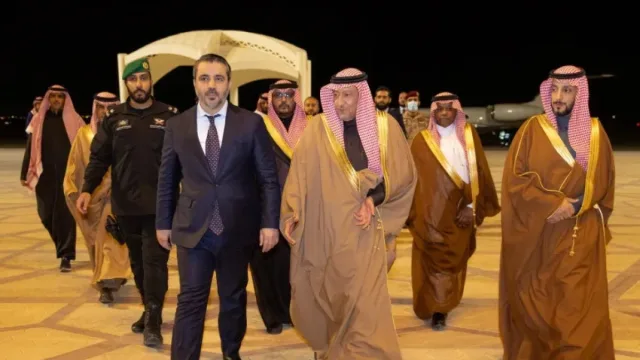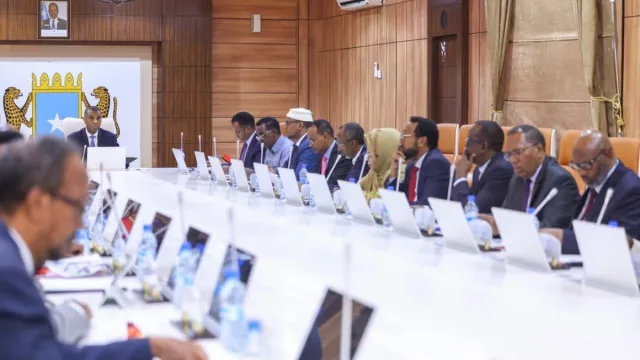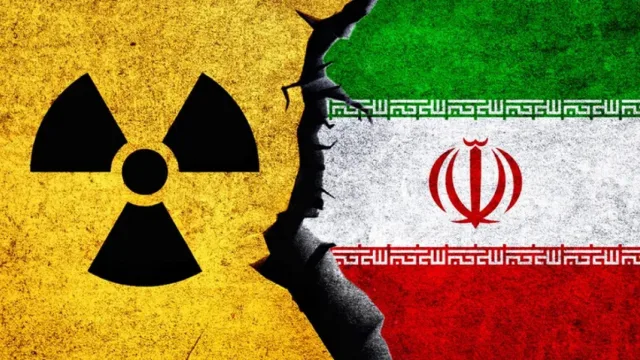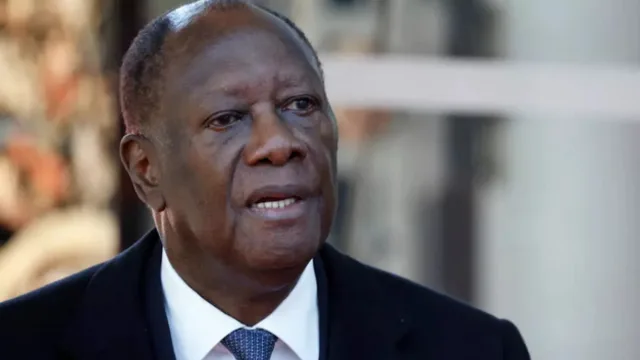The decision by the United Arab Emirates to withdraw its troops from Yemen was a tactical maneuver in…
The decision by the United Arab Emirates to withdraw its troops from Yemen was a tactical maneuver in a regional landscape witnessing several strategic challenges by other equally interested parties.
In addition to Yemen, other countries abutting the Horn of Africa and the Red Sea remain essential to Abu Dhabi’s foreign policy of exerting economic and military influence.
These include Somalia’s federated states of Somaliland and Puntland, Djibouti, Eritrea, Ethiopia, Sudan, and Egypt—all in one way or another reliant, at least partially, on economic largesse accruing from the Arabian Peninsula state’s second largest economy.

Only time will tell how the recent coup by Yemen’s southern secessionists against the legitimate government of President Abdrabbuh Mansour Hadi will fare in serving the UAE’s interests, considering the fluid situation in Aden and the surrounding areas.
The UAE has been the secessionists’ most enthusiastic regional supporter, at least partly because they afford it a foothold along one side of the Bab al-Mandab waterway that connects the Arabian Sea and Horn of Africa to the Red Sea, en route to the Suez Canal and the Mediterranean Sea.
“The UAE has emerged as the sponsor and supporter of ambitious secessionists in Somaliland and Puntland, where Abu Dhabi has invested time, energy, and financial and military resources“
in fact, and despite its status as a small state, the UAE has dared to endanger its alliance with Saudi Arabia in Yemen so it can claim an important piece of real estate in the regional strategic competition with other more endowed states including the United States, France, China, and Turkey.
One thing is sure: the UAE will do what is needed to preserve its influence anywhere it has a footprint, despite the cost.
Today, it emerges as the sponsor and supporter of ambitious secessionists in Somaliland and Puntland, where Abu Dhabi has invested time, energy, and financial and military resources.
Emirati leaders may have already made the decision to assist in creating pliant ministates along the eastern coast of Africa to practically mirror the rump state Yemen’s southern secessionists are currently struggling to establish.
If this is true and if plans for Yemen and Somalia succeed in this fashion, the world may be looking at a new challenge to regional stability and peace on the western edge of the Indian Ocean.
The UAE’s reach into Somalia
As a newcomer to Somali politics, the UAE is merely exploiting extant conditions of division, instability, and insecurity.
Somalia’s unity and territorial integrity have been challenged since the collapse of the Siad Barre presidency in 1991 and the creation of one authority after another by competing military, political, and religious groups.
Terrorism by the al-Qaeda-affiliated al-Shabab Movement still plagues the country and the so-called Islamic State has also been operating in Somalia. Piracy mushroomed across the Somali coast since at least 2008, benefiting from the lack of security mechanisms that a unified state could provide.
United Nations Security Council Resolution 2372 of 2017 created an African Union Mission in Somalia (AMISOM) that helps maintain security in urban centers, especially the capital Mogadishu—and that is after other UN missions in the country in the 1990s failed to bring stability.
Indeed, the UAE found fertile ground for a purposeful intervention in Somalia. First, two of Somalia’s constituent federated states, Somaliland and Puntland, are looking for independence from a central government that has failed to provide the necessary unifying ethos and development drive.
Second, the two aspirants have a favorable and enviable geopolitical location on the Horn of Africa, extending along the southern coast of the Gulf of Aden—in effect providing a hospitable area across from southern Yemen.
Third, the weakness of the central government and its dependence on international assistance prevents it from presenting a challenge to UAE plans. With the international community’s seeming abandonment of any serious attempt at getting involved in Somali affairs, the ambitious UAE found it easy to find willing and anxious interlocutors in Somaliland and Puntland.
The UAE has established thriving economic and military relations with Somaliland, which declared its unilateral independence in 1991. DP World, a Dubai port operating company, has pumped $442 million in Berbera port on the Gulf of Aden’s coast.
Last March, Somaliland’s President Muse Bihi Abdi made a six-day trip to the UAE where he met with officials and signed an agreement to expand the Berbera airport (which was built by the Soviet Union in the 1970s) to accommodate large aircraft.
As a newcomer to Somali politics, the UAE is merely exploiting extant conditions of division, instability, and insecurity
The UAE will operate both the airport and the seaport in exchange for several development projects in the territory and a military base close by. What was interesting was that the person with whom Bihi met and signed the agreement was UAE Deputy Prime Minister and Minister of State for Presidential Affairs Sheikh Mansour bin Zayed.
While Mansour is a representative of the government, his role may not attract as much international attention to the matter as it would have if the Crown Prince of Abu Dhabi, Mohammed bin Zayed (MbZ), were involved. MbZ has been the point man on the UAE’s intervention in Yemen on the side of that country’s southern secessionists.
In Puntland, which declared its autonomy in 1998, the UAE also found an eager partner. Last April, the state’s President Said Abdullahi Deni, elected in January 2019, asked Abu Dhabi’s help in strengthening the territory’s Maritime Police Force, which is responsible for fighting terrorists and pirates.
The UAE was instrumental in establishing the force in 2010 in the first place. In April 2018, the former president, Abdiweli Mohamed Ali, asked the UAE to remain engaged with his region after relations between Mogadishu and Abu Dhabi soured following the former’s reluctance to take sides in the 2017 crisis between the UAE and Qatar.
DP World also operates Puntland’s Bosaso port, also on the Gulf of Aden, and said in 2017 that it intends to invest $336 million in the facility that it leased for 30 years.
Other factors at work
To be sure, the UAE’s overtures to Somaliland and Puntland cannot be seen in isolationfrom Somalia’s neutrality in the 2017 rift between Qatar and the UAE-Saudi Arabia-Bahrain-Egypt quartet.
To UAE policymakers in the period following the 2011 Arab uprisings and the feared ascendance of Islamist forces, Somalia was and remains an arena for competition with Qatari—and, by extension, Turkish—influence. Somalia’s President Mohamed Abdullahi Mohamed (elected in February 2017) decided that neutrality in the 2017 Gulf crisis would save the country from unwarranted influence.
Mohamed also is reported to have rejected $80 million from Saudi Arabia, just after the crisis began, to cut off relations with Qatar. Somalia’s decision to remain neutral, and the UAE’s interest in developing relations with the two breakaway regions, are arguably the most consequential factors determining how Abu Dhabi charts its future course of action in the country.
The fraught and uncertain UAE-Somalia relationship ran into trouble when, in April 2018, Somali authorities confiscated bags of cash containing $9.6 million aboard an Emirati plane at Mogadishu airport.
While the UAE maintained that the cash was for the purpose of paying Somali soldiers it was training, Somali authorities insisted these soldiers were being used to foment sedition against the central government.
To UAE policymakers in the period following the 2011 Arab uprisings and the feared ascendance of Islamist forces, Somalia was and remains an arena for competition with Qatari and, by extension, Turkish influence.
A few days later, Somali officials again suspected luggage at Bosaso airport in Puntland and tried to search it to no avail. The two incidents, occurring while the Mogadishu government was refusing to declare its pro-UAE stance in the GCC crisis, resulted in the Emirati decision to end the training program of the Somali Army and cut off development assistance.
Adding to the troubles are Mogadishu’s good relations with Ankara and Doha. Turkey has been among the largest providers of economic and social services to Somalia.
It also established a military base in Mogadishu in 2017 that trains 10,000 Somali soldiers; in addition, Turkish exports to Somalia increased from $5.1 million in 2010 to $123 million in 2017. For its part, Qatar has supported the central government in Mogadishu and has pledged financial assistance for infrastructure and social development projects.
In early 2019, it donated 68 armored vehicles to Somalia’s armed forces. On August 20, the two countries signed an agreement whereby Qatar will build a new seaport in the port city of Hobyo on the eastern shore, practically emulating UAE investments in maritime facilities in Somaliland and Puntland.
The danger of it all
The support Abu Dhabi is providing to Somaliland and Puntland must be evaluated in the context of the aid the UAE has been giving to Yemen’s southern secessionists who recently staged a coup in Aden against the Hadi government.
In fact, the success of that coup could very well influence whether the two breakaway regions decide that the time is opportune to declare themselves fully independent, thus forcing the complete disintegration of Somalia and the possible full collapse of central authority in Mogadishu.
But whatever the timing and expected cost, the UAE will most definitely benefit from having friendly, indeed pliant, clients on the northern and southern coasts of the Gulf of Aden.
The question remains as to the wisdom of giving preference to strategic and economic benefits to the UAE itself and not to the objectives of stability and security for the wider region, one that extends from the Somali coast to the Red Sea.
Granted, it is easier to deal with pliant rump states that are dependent on the largesse of a capable sponsor, in this case the UAE; but helping the secessionist leaders of Somaliland and Puntland realize their costly dream of independence is likely to throw Somalia and the surrounding countries into chaos.
Renewing Somalia’s civil war would give sustenance to extremists already in the country, helping them expand their operations in that most important and strategic territory.Imad K. Harb is the Director of Research and Analysis at Arab Center Washington DC.
Join the conversation: @The_NewArab
This article was originally published on Lobelog.





